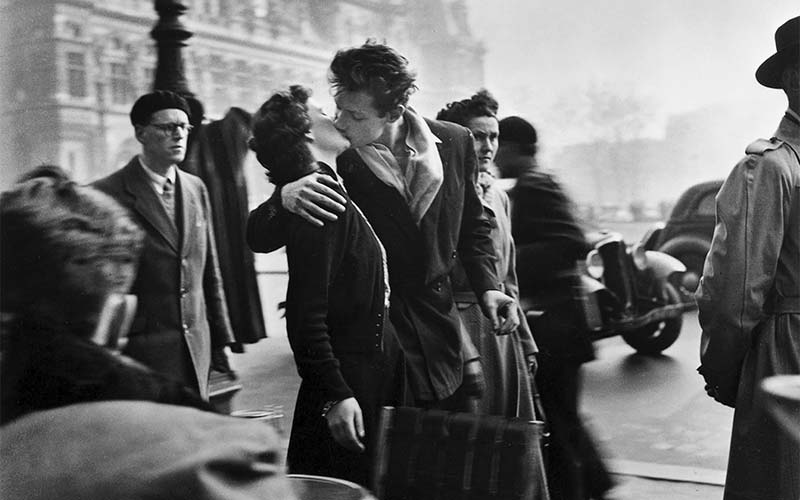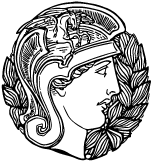
What is love? It may be a many-splendored thing, or the dizzy dancing way you feel. But in French fiction, it’s also a bolt from the blue, intoxication and addiction, deception and disguise, seduction and surrender, taboo and transgression, murderous musings, pangs of jealousy, fantasy, abandonment, and eclipse. Few have written better on the pleasures and perils of love than the French. The French Kisses reading group will survey “love” in multiple manifestations from a wide selection of French writers.
While writers around the world have addressed the subject of “love,” the French have developed a long tradition that explores its erotic and emotional dimensions. Part of this tradition is the ability to represent the most passionate states, while at the same time analyze them critically. This dual focus has produced works that have initially been deemed scandalous but, with the passage of time, have come to be regarded as literary classics.
Over two years, the French Kisses reading group will read and discuss works of French fiction in translation from the 17th century to the present. Year 1 met from September 2019 to June 2020, and included works by Madame de Lafayette, Abbé Prévost, Choderlos de Laclos, Honoré de Balzac, Gustave Flaubert, Emile Zola, and Marcel Proust. Year 2 will meet from September 2020 to June 2021 to read and discuss works by Colette, André Gide, Raymond Radiguet, Violette Leduc, Georges Bataille, Pauline Réage, Jean Genet, Françoise Sagan, Simone de Beauvoir, Marguerite Duras, Anne Garréta, Annie Ernaux, and Leila Slimani. While many of these names may be unfamiliar to American readers, to French readers they are well known.
Each of us may have his or her own notion of “love.” Discussing these works together should prompt reflection and reconsideration of how we understand “love” in light of the experiences and expressions of others. Many of these works will challenge simplistic or sentimental notions of love. Some readers will find certain of these works offensive. We read them not to give (or take) offense, but rather to enlarge our understanding of the range of human experiences that make up “love.”
For Year 2, the More French Kisses reading group meets monthly from September 2020 to June 2021. The meetings will take place on Zoom until further notice.
The Athenaeum is hosting two identical sections of the group, one on the second Tuesday of each month, and one on the second Wednesday of each month, with one exception as noted below in November. The meeting days will always be back-to-back. Participants will be asked to select their preferred session during registration. Meetings will begin promptly at 5:30 p.m. and conclude at 7:00 p.m. Meetings will take place using the Zoom platform.
Monthly readings will typically be about 200-250 pages. All readings are in English translation. A list of recommended translations and editions is provided below. Readers who wish to read in French are welcome to do so. All discussion will be in English.
Please note that there is a reading assignment for the first meeting.
Tues, September 8 & Wed, September 9 | Claudine at School, Colette. The Complete Claudine, Translation by Antonia White. Farrar, Straus and Giroux.
Tues, October 13 & Wed, October 14 | The Pure and the Impure, Colette. Translation by Herma Briffault. NYRB Classics.
Mon, November 9 & Tues, November 10 [Wednesday group will meet on Monday] | The Immoralist, André Gide. Translation by Richard Howard. Vintage International.
Tues, December 8 & Wed, December 9 | The Devil in the Flesh, Raymond Radiguet, Translation by Christopher Moncrieff. Melville House Publishing; and Thérèse and Isabelle, Violette Leduc. Translation by Sophie Lewis. The Feminist Press.
Tues, January 12 & Wed, January 13 | Story of the Eye, Georges Bataille, Translation by Joachim Neugroschel. City Lights; and Story of O, Pauline Réage. Translation by Sabine d’Estrée. Ballantine Books.
Tues, February 9 & Wed, February 10 | Our Lady of the Flowers, Jean Genet. Translation by Bernard Frechtman. Grove Press.
Tues, March 9 & Wed, March 10 | Bonjour Tristesse, Françoise Sagan, Translation by Heather Lloyd. Penguin Modern Classics OR Translation by Irene Ash, Harper Perennial Modern Classics; and The Woman Destroyed, Simone de Beauvoir. Translation by Patrick O’Brian. Pantheon Books.
Tues, April 13 & Wed, April 14 | The Lover, Marguerite Duras, Translation by Barbara Bray. Pantheon Books; and Sphinx, Anne Garréta. Translation by Emma Ramadan. Deep Vellum Publishing.
Tues, May 11 & Wed, May 12 | Simple Passion, Annie Ernaux, Translation by Tanya Leslie. Seven Stories Press; and Adèle, Leila Slimani. Translation by Sam Taylor. Penguin.
Tues, June 8 & Wed, June 9 | Celebration meeting (optional), no reading assignment
The works cited below represent a very small selection on the theme of love in French fiction. Additional works may be added to this list over the course of the reading group.
Roland Barthes, A Lover’s Discourse: Fragments. Translated by Richard Howard. Hill and Wang, 2010 (translation edition). Originally published in French in 1978 as Fragments d’un discours amoureux. Idiosyncratic and brilliant exploration of love by the noted French cultural and literary critic.
Georges Bataille, Eroticism. Translated by Mary Dalwood. Penguin Modern Classics, 2012. Originally published in French in 1957 as L’érotisme. Philosophical essays on sexuality and culture, transgression, and religion. Hugely influential in French intellectual life, may seem dated today.
Simone de Beauvoir, The Second Sex. Translated by Constance Borde and Sheila Malovany-Chevallier. Vintage, 2011. Originally published in French in 1949 as Le Deuxième Sexe. Classic, lengthy philosophical analysis of the Western notion of “woman,” concerning inequality and otherness. Ground zero for understanding modern feminism.
Virginie Despentes, King Kong Theory. Translated by Stéphanie Benson. The Feminist Press, 2010. Originally published in French in 2006 as King Kong Théorie. Provocative memoir, harangue, essay by a contemporary author; a lively strand of feminisme français.
Leah D. Hewitt, Autobiographical Tightropes. University of Nebraska Press, 1990. Academic analysis of five 20th century French women writers. Chapters on Simone de Beauvoir and Marguerite Duras.
Michael Lucey, Someone: The Pragmatics of Misfit Sexualities from Colette to Hervé Guibert. University of Chicago Press, 2019. Academic analysis of 20th century French writers, including Colette, Bataille, Genet, Leduc, de Beauvoir, and Duras (and others).
Ann Snitow, The Feminism of Uncertainty: A Gender Diary. Duke University Press, 2015. Engaging and intellectually diverse essays on feminism, and feminist perspectives on social, literary and personal topics, including pornography and the evolution of French feminism.
Selected Biographies
I haven’t read all of these. Thurman’s biography of Colette and White’s biography of Genet are definitive works, prizewinners, and very long. The Reaktion Books “Critical Lives” series is recent, well done, and brief. Sartre’s book on Genet is classic but perhaps too abstract and philosophical for most readers’ taste.
Judith Thurman, Secrets of the Flesh: A Life of Colette. Ballantine Books, 2011. [754 pages]
Stuart Kendall, Georges Bataille (Critical Lives). Reaktion Books, 2007. [192 pages]
Stephen Barber, Jean Genet (Critical Lives). Reaktion Books, 2005. [156 pages]
Edmund White, Genet: A Biography. Vintage, 1994. [804 pages]
Jean-Paul Sartre, Saint Genet: Actor and Martyr. Translated by Bernard Frechtman. University of Minnesota Press, 2012 (reprint). [640 pages]
Deirdre Bair, Simone de Beauvoir: A Biography. Touchstone, 1991. [718 pages]
Kate Kirkpatrick, Becoming Beauvoir: A Life. Bloomsbury Academic, 2020. [496 pages]
Laure Adler, Marguerite Duras: A Life. University of Chicago Press, 2000. [416 pages]
Athenæum member Steve Coon leads the group as facilitator. Steve earned a Ph.D. from Brown University in Comparative Literature, with a focus on 19th and 20th century fiction and poetry. Since 2012, he has led reading groups at the Athenæum, including groups on Proust’s In Search of Lost Time, Balzac and Baudelaire, W.G. Sebald, Roberto Bolaño, and Melville and Conrad. Steve emphasizes that the group is not a “class,” but rather an opportunity for interested readers of all backgrounds to explore, enjoy, understand and engage with this most important theme in French literature.
This group is nearing completion. Fall 2021/Spring 2022 reading groups will be announced this summer, and registration will open in July/August. Participation is reserved for Athenæum members. If you have any questions, please email readinggroups@provath.org.



